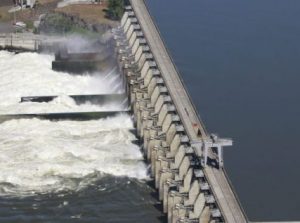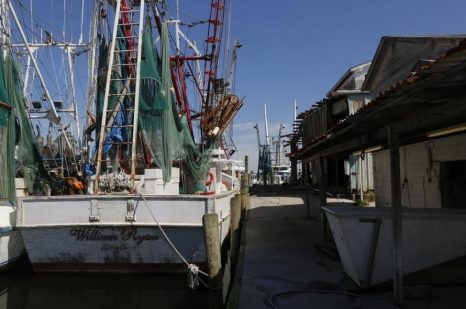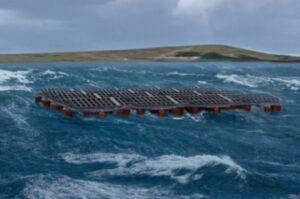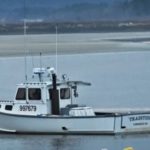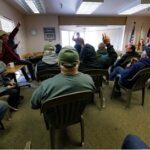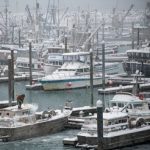Tag Archives: NOAA Fisheries

Feds push ignorance defense for whale killing by offshore wind development
The Bureau of Ocean Energy Management and the NOAA Fisheries agency have both put out what amount to “arguments from ignorance” claiming that offshore wind development has nothing to do with the recent whale deaths. “We know nothing about it so it must not be happening” is a ridiculous defense to the charge of offshore wind development causing the death of a lot of whales. But this is exactly what the Feds are now saying. NOAA Fisheries is a scientific agency and their version is more scientific, which is important because this is really a scientific issue. Let us look at their arguments. >click to read< 17:38
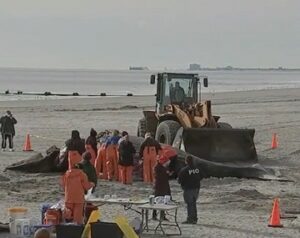
Another dead whale washes up on Jersey Shore beach
A third humpback whale in about a month washed up at the Jersey Shore over the weekend, concerning both residents and conservationists. Atlantic City officials say the 30-foot adult humpback whale was discovered on the beach near South Mississippi Avenue Saturday, only a few blocks from where another whale washed ashore on Christmas weekend Spectators watched as scientists began a necropsy on Sunday. Some protesters on the beach Sunday speculate an offshore wind turbine project may have something to do with this. “We’ve never had this number of whale deaths and beaching’s ever as far as I recall,” said Frank Leone from Protect our Coast New Jersey. Video, >click to read< 13:29
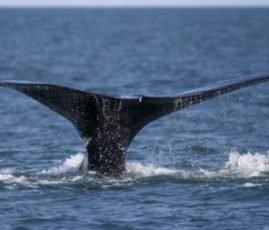
Federal court rules fisheries officials didn’t do enough to protect right whales from lobster gear
A federal court on Friday ruled in favor of environmental groups that had filed a lawsuit against the government and the Maine Lobstermen’s Association claiming federal fisheries officials had failed to protect endangered North Atlantic right whales from potentially fatal entanglements in lobster fishing gear, records show. A judge ruled that NOAA Fisheries had violated the Marine Mammal Protection Act and Endangered Species Act when it issued a May 2021 biological opinion and a September 2021 final rule because officials had not done enough to reduce the lobster fishery’s threat to right whales, the plaintiffs in the suit said in a statement. >click to read< 18:00

Gulf Coast Seafood Alliance Supports Lawsuit Challenging Unlawful Red Grouper Quotas
Commercial fishermen and members of the Gulf of Mexico seafood industry have filed a lawsuit challenging the legality of a recent decision by NOAA Fisheries to reallocate red grouper quota to recreational fishermen at the expense of the commercial fishery. The Gulf Coast Seafood Alliance supports the efforts by the Gulf of Mexico Reef Fish Shareholders’ Alliance, Southern Offshore Fishing Association, and A.P. Bell Fish Company to challenge this decision, in an effort to restore a fair allocation for commercial fishermen. The lawsuit, filed late on Friday in the U.S. District Court for the District of Columbia, challenges recent red grouper allocations approved by NOAA as part of Amendment 53 to the Fishery Management Plan for the Reef Fish Resources of the Gulf of Mexico. >click to read< 16:16
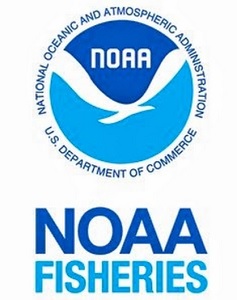
Pot/Trap Fisheries Regulations to Help Save North Atlantic Right Whales Announced
NOAA Fisheries and our partners are dedicated to conserving and rebuilding the North Atlantic right whale population, which is endangered, declining, and experiencing an ongoing Unusual Mortality Event. Entanglement in commercial fishing gear is a primary cause of mortalities and serious injuries of North Atlantic right whales. Working with the Atlantic Large Whale Take Reduction Team, a group of advisors consisting of fishermen, scientists, conservationists, and state and federal officials, we have completed Phase 1 of the modifications to the Atlantic Large Whale Take Reduction Plan to continue to reduce whale entanglements. Today, we are announcing the final rule to modify the Atlantic Large Whale Take Reduction Plan. >click to read< 15:22
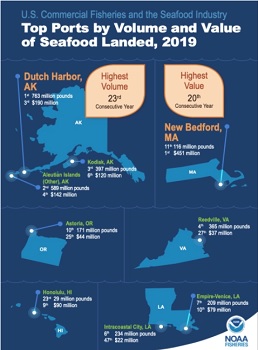
New Bedford is America’s number 1 fishing port for 20th straight year
The National Marine Fisheries Service released its annual report on the health of the nation’s fishing industry on Thursday,,, New Bedford ranked No. 1 for the value of seafood landed at its port for the 20th consecutive year in 2019, with $451 million worth of fish hauled in by its boats. That was up by $20 million compared with the year before, and far outpaced the second-ranked Port of Naknek, Alaska, which had $289 million worth of landings. NOAA officials said New Bedford’s dominance remains driven by sea scallops, which account for 84% of the value of all landings there. >click to read< 14:21
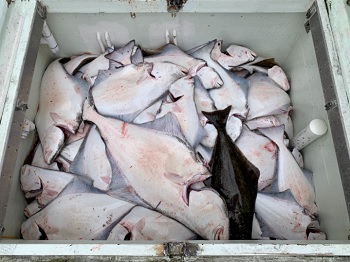
NOAA Fisheries reports on early pandemic impact on fisheries
NOAA Fisheries Friday, January 15 released a report on the economic impact on the seafood catch and recreational fishing nationwide and here in Alaska through last summer.,, Nationwide the commercial fishing industry started off 2020 with increases in revenue from seafood sales. But as the pandemic hit in March, that income dropped off 19 percent compared to the most recent five-year average. Those declines swelled to 45 percent by July. >click to read< 19:25
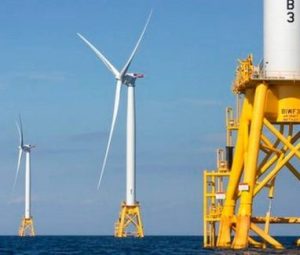
Renewables and unions: Biden rounds out energy Cabinet
President-elect Joe Biden closed out his Cabinet picks last week with the choice of Rhode Island Gov. Gina Raimondo (D) for Commerce secretary and Boston Mayor Marty Walsh for Labor secretary,,, Offshore wind insiders say Raimondo appears to be an answer to the growing friction between a burgeoning renewable sector and the fishermen who have long been the ocean’s dominant users.,, Raimondo would oversee NOAA Fisheries, a critical gatekeeper to the growing line of offshore wind projects awaiting approval from the incoming Biden government. >click to read< 17:08
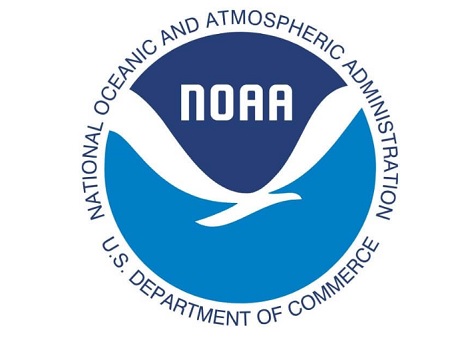
NOAA Fisheries Needs to Declare Fishery Disaster for Northeast Fisheries
NOAA Fisheries needs to declare a fishery disaster for the north Atlantic fisheries of the east coast due to complications caused by the Coronavirus pandemic. Due to government shutdowns of the primary market for US seafood, the restaurants, the fishing industry has been suffering not from a shortage of fish, but from a shortage of markets to sell them. 70% of the sea food consumed in the United States is sold in restaurants, the Corona pandemic has caused complete shutdowns of indoor dining in many states or reduced capacity seating in others. This has resulted in no demand for fresh local US caught fish, a very perishable product, and the resultant low prices that haven’t been seen in 50 years. By Jim Lovgren, >click to read< 07:38
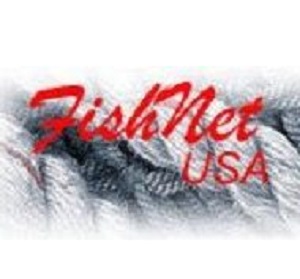
Nils E. Stolpe/FishnetUSA – NOAA Fisheries Coronavirus (COVID-19) Update
Well, first we have this reassuring (at least if you’re not that familiar with the capacity of NOAA Fisheries to get it really, really wrong!) statement that “NOAA Fisheries is actively monitoring and adjusting to the COVID-19 national health crisis”. Nothing to worry about, right? Well, not quite nothing. While I’ve seen nothing official, word on (at least some of the New Jersey) docks is that, in spite of the ongoing and very possibly worsening national Covid-19 health crisis, the mandatory on-board observers are back in force and demanding rides.,, It seems like just about anything that might involve NOAA/NMFS employee exposure to Covid-19 has either been cancelled or public participation has been severely restricted or eliminated. >Click to read<17:12

AIS Inc. Wins Northeast Fisheries Five-year, $50 Million Dollar Observer Contract
AIS Inc., a scientific services company headquartered in Marion, Mass., has been awarded a five-year, $50 million contract to provide fisheries observers for federal monitoring programs in the Northeast. NOAA Fisheries has been contracting for fisheries observers in the Northeast since 1989. The work is fundamental to understanding and sustaining fisheries. AIS, Inc. is an experienced fisheries observer service company, employing people to monitor federal fisheries along the U.S. East Coast and in Alaska. Under this contract, the fisheries covered occur from Maine to North Carolina. >click to read<16:48
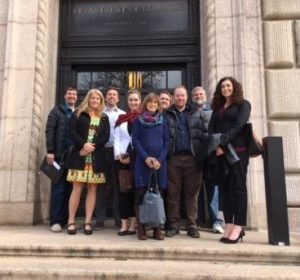
Alaska Fishing Delegation Heads To Washington
Representatives of the Alaska Longline Fishermen’s Association and the Alaska Marine Conservation Council– both members of the nationalFishing Communities Coalition (FCC) – were in Washington, DC, this week urging lawmakers to resist shortsighted efforts to weaken fishing communities by undermining key Magnuson-Stevens Act accountability provisions.,,, “The MSA is working in Alaska and around the country because all sectors adhere to scientifically-sound annual catch limits. >click to read<09:54
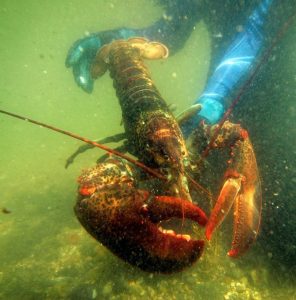
Benchmark study of lobsters begins
In 2015, data collected in a benchmark assessment of New England lobster stocks showed record-high abundance for the combined stocks of the Gulf of Maine and Georges Bank and record lows for the lobster stock of southern New England. Now, about three years later, the Atlantic States Marine Fisheries Commission is beginning preparations for the next American lobster benchmark assessment that is expected to be completed around March 2020. “We’re in the very early stages right now,” said Jeff Kipp, senior stock assessment scientist at the Arlington, Virginia-based ASMFC that regulates the Northeast lobster fishery. “The process will be mostly data-driven.” >click to read< 21:10
NOAA Fisheries rule should alarm taxpayers
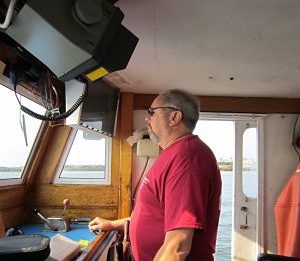 NOAA Fisheries has discovered a devious way to increase their budget without the checks and balances guaranteed by our forefathers, and the courts have let it stand. I have been involved in a lawsuit with NOAA Fisheries over who pays for at-sea monitors (ASM) for the last three years. These are basically our own personal state police men who ride along on the boat and watch and record everything fishermen do at sea. Fishermen have been forced to sign contracts with for-profit third-party companies that provide this service for $710 per day. Recently, the Supreme Court refused to hear our case, effectively ending our pursuit of justice. Readers should be concerned, not only because this job-killing regulation effects their ability to obtain local seafood, but also because the loss leaves in place a precedent that will allow regulatory agencies to tax citizens by passing regulations while bypassing Congress. click here to read the op-ed 08:56
NOAA Fisheries has discovered a devious way to increase their budget without the checks and balances guaranteed by our forefathers, and the courts have let it stand. I have been involved in a lawsuit with NOAA Fisheries over who pays for at-sea monitors (ASM) for the last three years. These are basically our own personal state police men who ride along on the boat and watch and record everything fishermen do at sea. Fishermen have been forced to sign contracts with for-profit third-party companies that provide this service for $710 per day. Recently, the Supreme Court refused to hear our case, effectively ending our pursuit of justice. Readers should be concerned, not only because this job-killing regulation effects their ability to obtain local seafood, but also because the loss leaves in place a precedent that will allow regulatory agencies to tax citizens by passing regulations while bypassing Congress. click here to read the op-ed 08:56
Groundfishermen: ‘It feels like we’re just forgotten’ – Fishermen who followed Goethel’s path through the federal courts said they were disappointed with the outcome. Goethel said he was “disillusioned” by the process. “Talk about feeling forgotten,” said Jamie Driscoll, a commercial fisherman from Kingston. “That’s how it feels. It feels like we’re just forgotten.” click here to read the op-ed
Legislative Bills would open red snapper harvest out to at least 25 miles
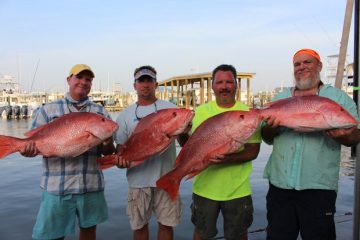 Louisiana senators and representatives have introduced companion legislation in Congress that would give states management authority of red snapper out to 25 miles or 25 fathoms, whichever is greater, off their coastlines. Currently, states control red snapper out to nine nautical miles. Both Louisiana senators, Bill Cassidy and John Kennedy, introduced the bill in the Senate, while Reps. Garret Graves, Cedric Richmond and Clay Higgins joined seven other representatives to propose the House bill. The legislation is designed to ensure Gulf of Mexico anglers have broader access to rebounding red snapper stocks during 2018 and beyond. This year, the Commerce Department gave recreational anglers 39 additional days in federal waters after NOAA Fisheries set a three-day recreational season. That move is being contested in court, and without legislation to address the issue, recreational anglers could be locked out of the fishery in 2018. click here to read the story 16:01
Louisiana senators and representatives have introduced companion legislation in Congress that would give states management authority of red snapper out to 25 miles or 25 fathoms, whichever is greater, off their coastlines. Currently, states control red snapper out to nine nautical miles. Both Louisiana senators, Bill Cassidy and John Kennedy, introduced the bill in the Senate, while Reps. Garret Graves, Cedric Richmond and Clay Higgins joined seven other representatives to propose the House bill. The legislation is designed to ensure Gulf of Mexico anglers have broader access to rebounding red snapper stocks during 2018 and beyond. This year, the Commerce Department gave recreational anglers 39 additional days in federal waters after NOAA Fisheries set a three-day recreational season. That move is being contested in court, and without legislation to address the issue, recreational anglers could be locked out of the fishery in 2018. click here to read the story 16:01
81 False killer whales die off South Florida coast
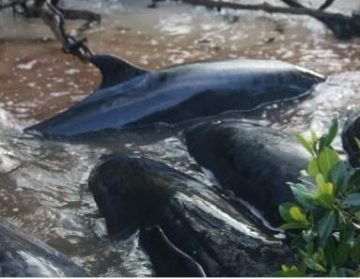 81 false killer whales have died after stranding themselves off the South Florida coast. NOAA announced the grim news on Monday afternoon. NOAA initially reported that 95 false killer whales were stranded in South Florida. Then on Monday afternoon, NOAA Fish Southeast tweeted that 81 whales had died and also said the whales were at a remote location off of Hog Key in the Everglades. One whale was seen alive on Monday and 13 others are unaccounted for, NOAA Fish Southeast said on Twitter on Monday afternoon. The National Park Service has closed the area around the whale stranding location. The National Park Service is asking that aircraft not fly over the area and that boats stay away from the area. Read the rest here 15:14
81 false killer whales have died after stranding themselves off the South Florida coast. NOAA announced the grim news on Monday afternoon. NOAA initially reported that 95 false killer whales were stranded in South Florida. Then on Monday afternoon, NOAA Fish Southeast tweeted that 81 whales had died and also said the whales were at a remote location off of Hog Key in the Everglades. One whale was seen alive on Monday and 13 others are unaccounted for, NOAA Fish Southeast said on Twitter on Monday afternoon. The National Park Service has closed the area around the whale stranding location. The National Park Service is asking that aircraft not fly over the area and that boats stay away from the area. Read the rest here 15:14
Time to protect cod habitat
 The decline of cod is the result of bad decisions by federal fisheries managers (under pressure from powerful fishing interests?) that encouraged overfishing for decades and failed to protect the habitat cod need to thrive. Read the rest here 07:40
The decline of cod is the result of bad decisions by federal fisheries managers (under pressure from powerful fishing interests?) that encouraged overfishing for decades and failed to protect the habitat cod need to thrive. Read the rest here 07:40







